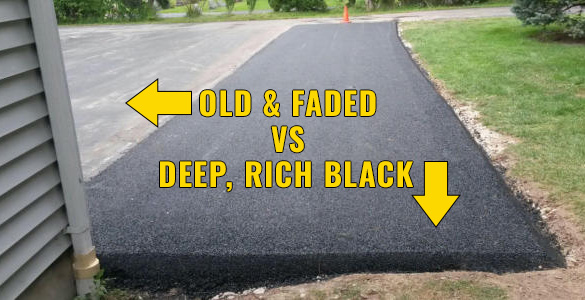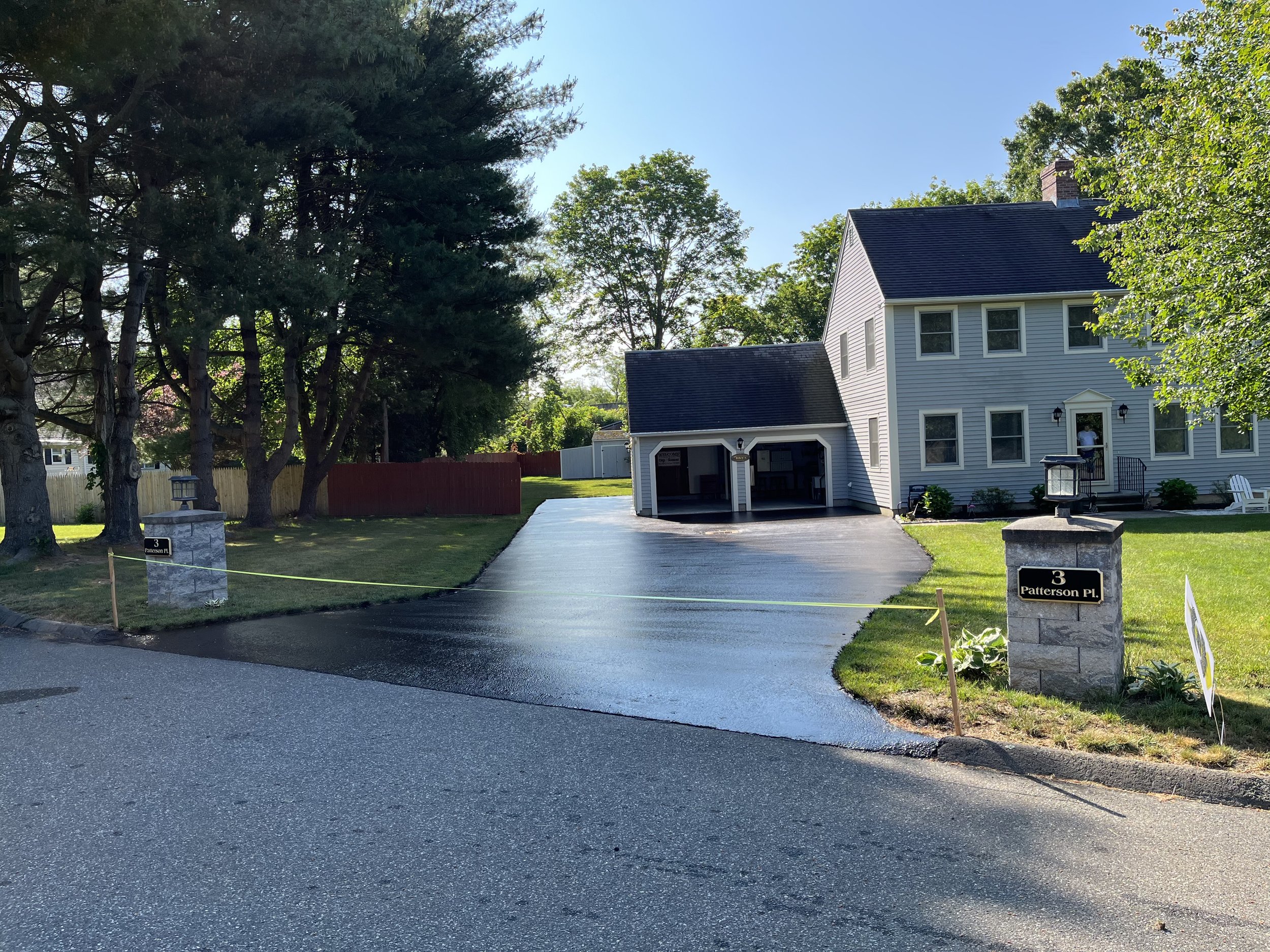Hot Mix Asphalt: A Lasting Option for Pavement
Warm Mix Asphalt (HMA) has arised as a leading sustainable selection for pavement remedies, providing a myriad of innovative innovations and environmental advantages. As the need for environment-friendly building techniques grows, checking out the subtleties of HMA's sustainability can provide beneficial understandings right into the future of sidewalk remedies.
Ecological Advantages of Hot Mix Asphalt

Moreover, Warm Mix Asphalt aids to mitigate metropolitan warmth island results. Its dark shade absorbs sunshine, decreasing the amount of warm showed back into the atmosphere contrasted to lighter-colored sidewalks. This can decrease ambient temperatures in city locations, lowering the demand for a/c and inevitably lowering power consumption.
In enhancement, Warm Mix Asphalt adds to enhanced stormwater administration. Its permeable nature allows water to reenergize and penetrate the pavement groundwater supplies, reducing runoff and the threat of flooding. These environmental advantages make Hot Mix Asphalt a lasting selection for leading roadways and freeways.
Energy Effectiveness in HMA Manufacturing
Is energy effectiveness a crucial variable in the manufacturing of Hot Mix Asphalt (HMA)? Energy plays a considerable role in the manufacturing of HMA, influencing both cost and ecological sustainability. One crucial facet of power performance in HMA production is the usage of cozy mix asphalt (WMA) innovations.
Additionally, improvements in plant modern technologies have led to more energy-efficient HMA production processes. By enhancing power usage in HMA production, the industry can lower its carbon footprint while keeping premium sidewalk materials.
Recyclability of Hot Mix Asphalt
The recyclability of Warm Mix Asphalt (HMA) is a critical aspect of its sustainability and long-lasting environmental impact. HMA is just one of the most recycled materials in the United States, with over 100 million heaps of recovered asphalt pavement (RAP) being reused every year in brand-new pavement construction. Reusing HMA uses a number of environmental benefits, such as lowering the demand for virgin materials, decreasing energy intake during production, and lowering the quantity of waste sent out to landfills.
The process of recycling HMA includes milling the existing sidewalk, squashing it right into smaller sized items, and mixing it with new accumulation and asphalt binder to produce a recycled mix. Generally, the recyclability of HMA plays a significant role in promoting sustainable methods within the sidewalk industry.

Long-Term Efficiency of HMA
Asphalt pavements show sturdiness and durability over a prolonged duration, mirroring the lasting performance of Hot Mix Asphalt (HMA) The long life of HMA can be attributed to its capacity to hold up against this link rush hour lots, rough climate condition, and the effects of aging. Researches have revealed that properly designed and correctly constructed HMA pavements can last for 20 years or more with normal maintenance. The trick to maximizing the long-lasting efficiency of HMA exists in making use of high-grade products, complying with best practices in building, and applying efficient maintenance approaches. Appropriate drain, regular evaluations, and prompt repair services are vital for preserving the structural honesty of HMA pavements in time. Additionally, advancements in HMA modern technology, such as making use of polymer-modified binders and warm mix asphalt, have actually additionally enhanced the longevity and durability of HMA pavements. By focusing on high quality construction and upkeep practices, HMA proceeds to prove itself as a cost-effective and lasting solution for resilient sidewalk facilities.

HMA: Sturdiness and Sustainability
Showing both sturdiness and sustainability, Hot Mix Asphalt (HMA) has actually become a keystone in the construction of durable pavement frameworks - angled parking. HMA's durability comes from its capacity to endure hefty loads, severe climate condition, and high website traffic volumes, making it a trusted choice for roads, freeways, and flight terminal paths. The composition of HMA, which normally consists of aggregates, binder, and filler, plays an essential function in boosting its longevity and resistance to tear and put on
Moreover, HMA's sustainability depends on its recyclability and energy-efficient production process. The capacity to recycle reclaimed asphalt pavement (RAP) in new HMA combinations decreases the demand for virgin products and decreases the ecological impact of pavement building and upkeep. In addition, the power efficiency of producing HMA depends on its reduced blending temperatures compared to various other sidewalk products, leading to decreased power consumption and greenhouse gas exhausts.
Conclusion
In final thought, warm mix asphalt (HMA) uses a sustainable service for sidewalk with its environmentally friendly characteristics. HMA's recyclability, power effectiveness in production, and long-lasting toughness make it an company website environment-friendly choice for roadway building.
HMA is one of the most recycled materials in the United States, with over 100 million bunches of recovered asphalt sidewalk (RAP) being reused each year in new sidewalk building.The procedure of reusing HMA includes crushing the existing pavement, squashing it into smaller sized pieces, and blending it with brand-new aggregate and asphalt binder to produce a recycled mix.Asphalt sidewalks demonstrate durability and durability over an extended duration, reflecting the lasting performance of Hot Mix Asphalt (HMA) In addition, improvements in HMA technology, such as the use of polymer-modified binders and cozy mix asphalt, have actually even more boosted he has a good point the resilience and long life of HMA sidewalks. The capability to reuse recovered asphalt sidewalk (RAP) in brand-new HMA mixes minimizes the need for virgin materials and decreases the environmental effect of sidewalk building and construction and maintenance.
Comments on “Discover the Power of Business Car Park Leading and Asphalt Sealing”